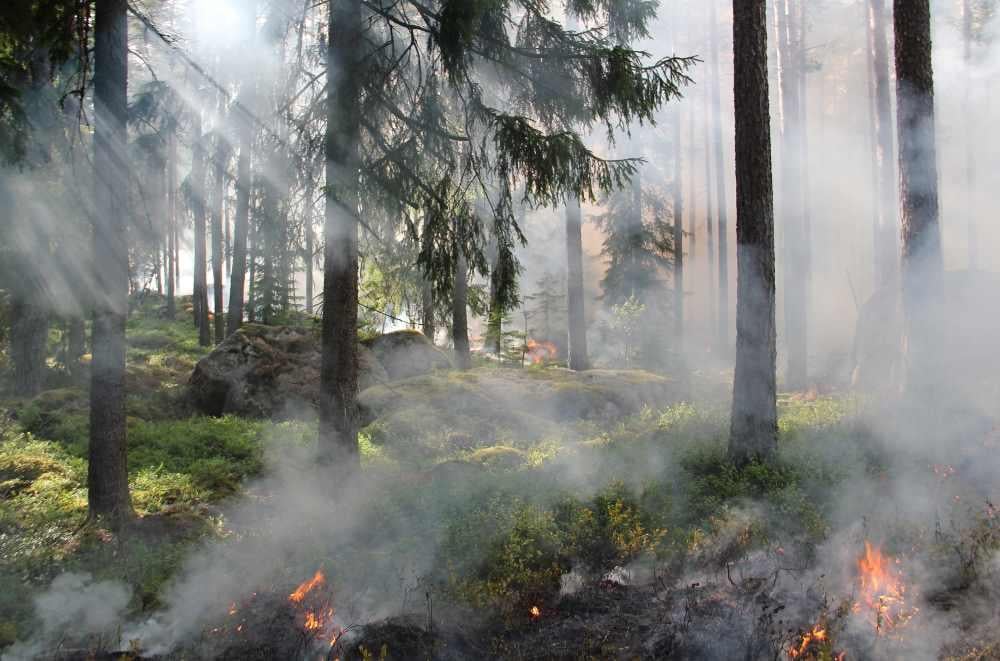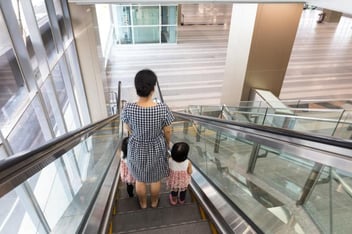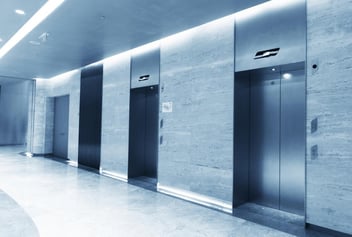If you live in an area where there are wildfires, you need to know that fire and water damage from firefighting activities can pose risks for both gas and electrical equipment. Here, we explain how the province defines evacuations, and provide some tips for homeowners and businesses if evacuation or loss of power due to fire is expected.
Evacuations
The Province has two levels of evacuation status, defined below.
- Evacuation Alert - All residents in an area are on standby and should be ready to evacuate if given the order.
- Evacuation Order - The Province has ordered residents to leave their homes and temporarily move out of the area impacted
On evacuation alert
If you are on evacuation alert, please consider taking the following preparations:
- Unplug non-essential electrical appliances.
- Move portable propane cylinders away from any house or structure to an area where fire impact will be minimal.
- Turn off valves and power knobs on appliances and systems.
- Shut off the water leading to hot water tanks.
- If you have propane storage tanks on site, clear the area underneath and within 10 feet from vegetation or any other combustible material to limit the damage from wildfires.
On evacuation order
In the event of an active evacuation order, it's important to always folIow the instructions of authorities. If you are on evacuation order, never remain in your home or business, and review the following items:
- If natural gas is supplied by Fortis BC or Pacific Northern Gas: Do not shut off your natural gas if you receive an evacuation order. If fire or emergency officials request Fortis BC or PNG will turn off the natural gas service in the area if fire/emergency officials request it, or if there is an immediate threat to a Fortis BC or PNG infrastructure.
- If you are on propane or your gas is supplied by someone other than Fortis BC or Pacific Northern Gas: Shut off the main gas supply upstream of the gas meter or at the propane tank or cylinder.
Returning home after evacuation
Only return to your home or business after the area of occupancy has been declared safe to enter by the proper authorities. When returning to a fire-damaged or water-wetted area, tak these precautions:
- Follow all of the instructions provided by local authorities (police, fire officials, municipal leaders, etc.)
- If you smell rotten eggs, leave the area immediately and call your gas utility, propane supplier, or 911.
- Do not plug in or turn on any fire or water-damaged appliance or system. Call licensed gas and electrical contractors to do an inspection first. You can locate a licensed contractor in your area via our Find a Contractor tool.
- If gas suppliers have shut off fuel supplies, removed gas meters or propane containers, contact your provider regarding the process to have your home or building re-energized. In some cases, a tag may be provided on site outlining these requirements.
- For more information on fire, flood or evacuation alerts, please visit the Emergency Information BC website. Contractors may wish to review our information bulletin on natural disaster protocols around electrical and gas equipment.
Technical Safety BC and an Emergency
- Technical Safety BC safety officers are available to provide technical advice to homeowners, building owners, contractors, emergency response personnel and gas/electrical suppliers.
- Technical Safety BC safety officers do not physically inspect or complete repairs on fire- or water-damaged equipment. Please contact a licensed contractor in your area to complete this work.




